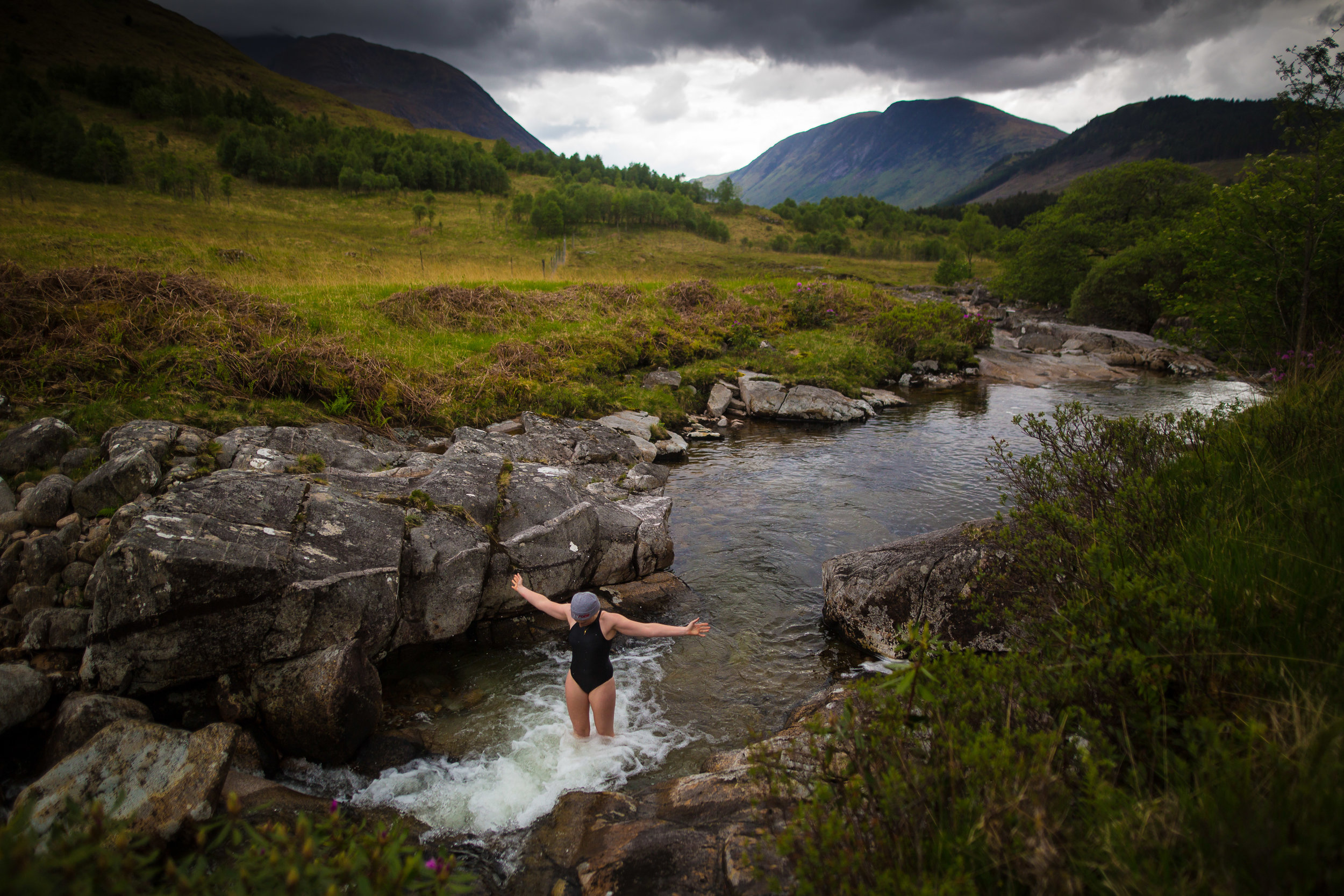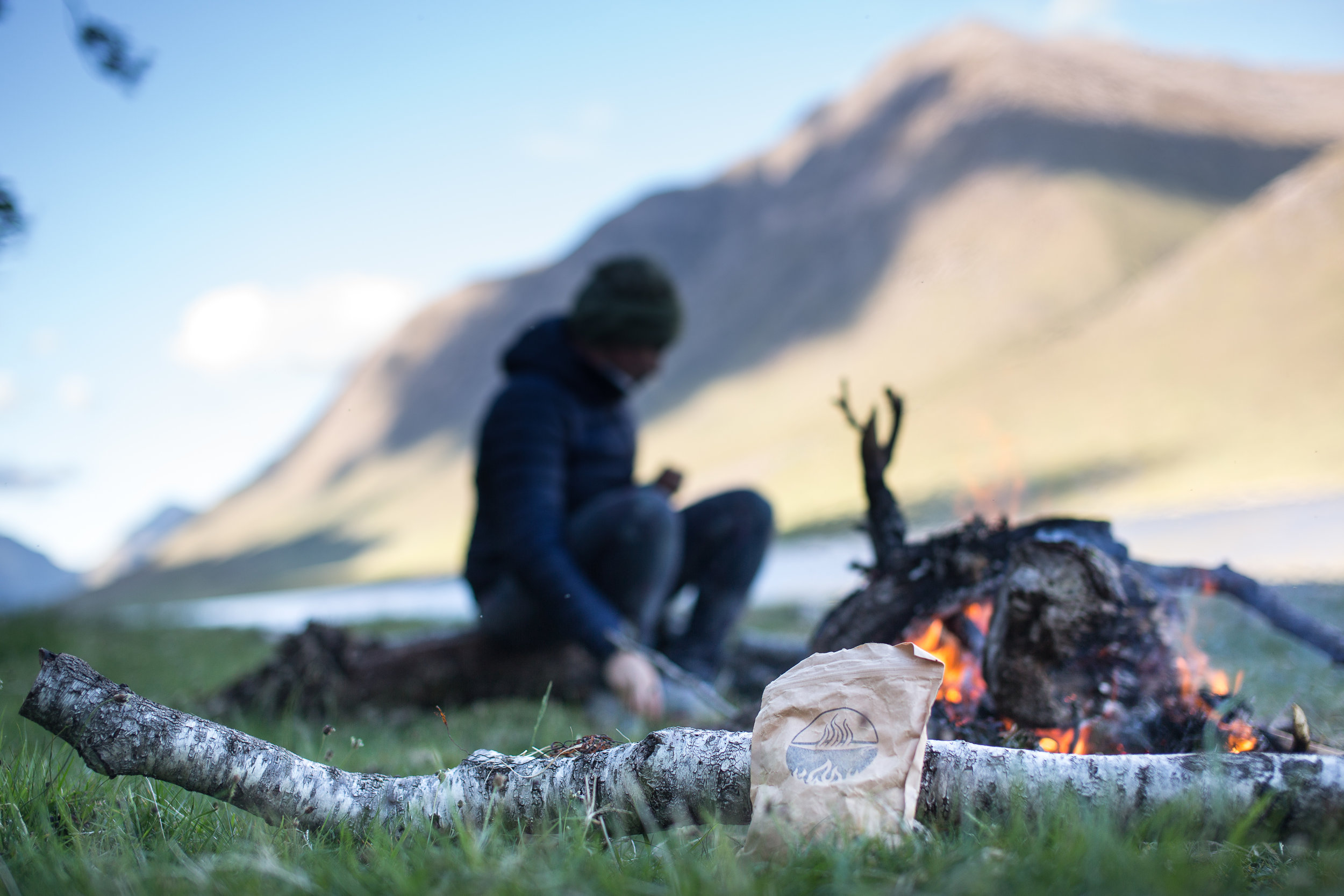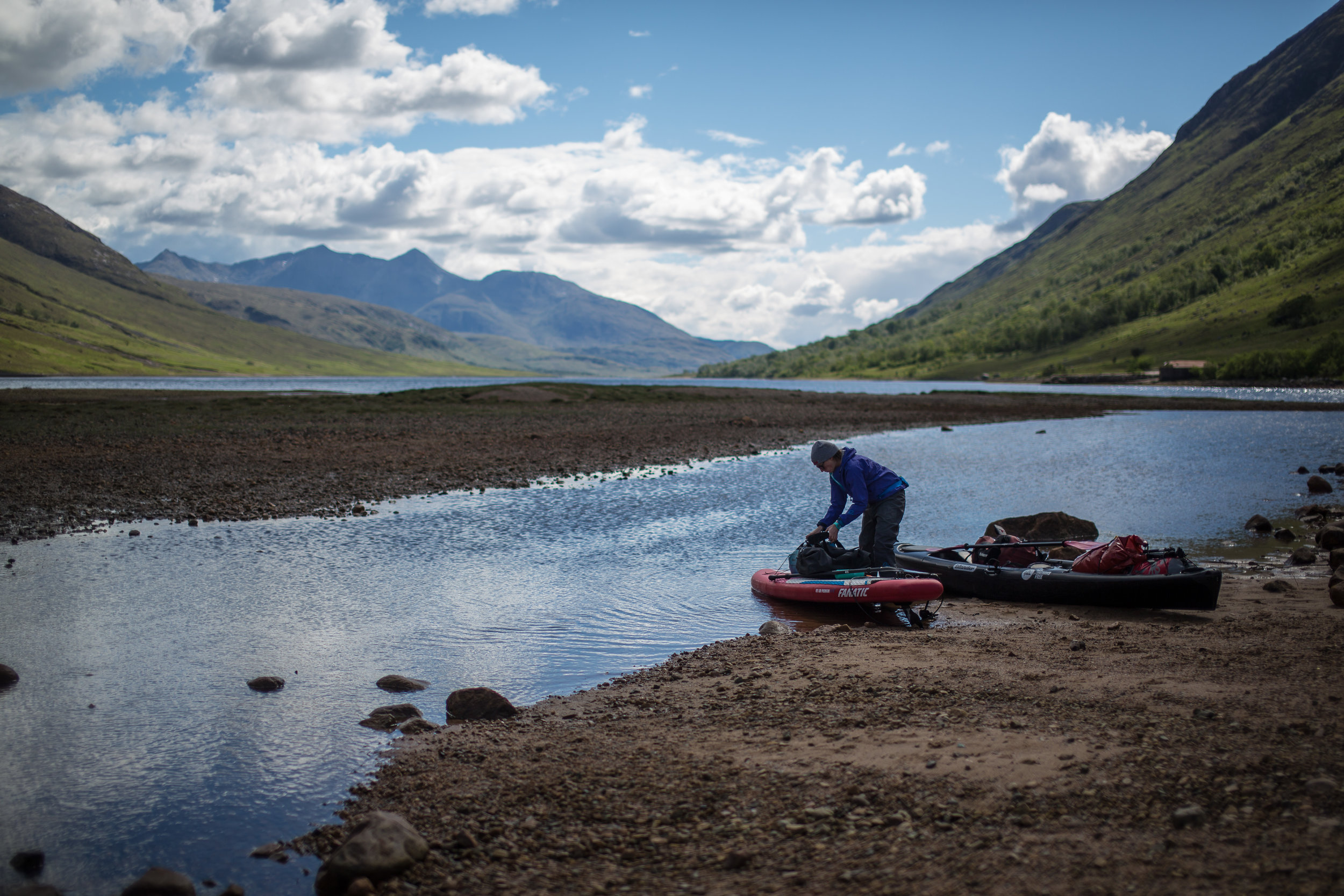Glen Etive, Scotland
Glen Etive is a stunning valley in Scotland, just next to Glen Coe. It’s one of the most peaceful places I’ve ever been, barely touched by infrastructure except a single-track road that runs to the loch at the end of the valley. It has an other-worldly feel to it; vast mountains surrounding it, quiet within the glen, and the sight and sound of water flowing in the River Etive from the numerous tributaries that feed it.
The Glen was carved out of the mountains millions of years ago by the movement of glaciers, and the River Etive, running through the Glen, has since moulded its own path, with waterfalls, smooth slides and pools interspersing the run of the river. The tributaries that feed the river are even more impressive, cutting their way between mountains, with natural jacuzzis, pools big enough to dive into, and the sound of nothing but water moving through the mountains, as nature intended.
The River Etive is one of the remaining 1% of entirely free-flowing rivers left in the UK. Why is that important? The Glen acts as one whole ecosystem, with unique sediment transfer from the tributaries into the river, and into Loch Etive further downstream. The loch is home to a colony of common seals, is frequented by otters, and you’ll often see eagles flying above. The river is an important spawning ground for salmon and other fish, and over thousands of years this incredible Glen has created a fully functional ecosystem.
Loch Etive
It really is one of the most incredibly stunning places I have ever been to.
I spent the best part of a week there with my boyfriend, James, a professional photographer and film-maker who was in his element with the canvas he had been given. I swam in the pools, slid down the water slides (note to self - rock is abrasive, bottom is sensitive), sat under the waterfalls. I paddled in the loch, joined by seals. And midges. It felt like a complete escape, a step into the wild and back to health.
“Thousands of tired, nerve-shaken, over-civilized people are beginning to find out that going to the mountains is going home; that wildness is a necessity”
But there was one thing that stopped me being able to switch off.
This is all under threat.
Hydro schemes have been proposed, and approved, on seven of the major tributaries feeding the River Etive. You would be forgiven for thinking this might be a good idea, given the immediate need to switch our energy sources to renewables. However, dams are incredibly damaging to an environment, and in no way can be described as ‘clean energy’. Building dams irreparably damages that environment, permanently destroys the natural flow of the ecosystem, and requires destructive practices to create the infrastructure to build dams. In other words, building a single dam in Glen Etive will irreparably destroy this unique ecosystem. Building seven dams is like cutting off all of a tree’s main branches and expecting it still to thrive. Add to this that other ways of generating renewable energy are far more efficient, and far lass destructive, such as a single offshore wind turbine which produces more renewable energy than all of these proposed dams together, and there really is no reason to think that this plan is a good idea.
Patagonia and Save Our Rivers have been campaigning against dams for years, and there is some really insightful information, and pretty eye-opening reading on this blog from Yvon Chouinard, founder of Patagonia.
Back to Glen Etive, there has been much focus on this as a travesty for kayakers, the river being a premiere location for white water kayaking; its pools, waterfalls and natural slides acting as the perfect playground. There has been outrage amongst the hiking community for the destruction of pristine views, and the importance of untouched landscapes for our wellbeing.
I agree with these arguments whole heartedly. We know how crucial time in nature is for our emotional and physical wellbeing. However what outrages me the most is the lack of joined up thinking that has allowed this to happen.
Despite protests by the local Save Glen Etive group, the desperation for renewable energy without considering that these proposed schemes are destroying the very thing we seek to protect has resulted in local authorities giving the green light for all seven of the proposed dams to be built.
Rivers are the arteries of our planet. They are vital habitats for wildlife, and are fundamental to any ecosystem. We cannot expect to destroy the very life force of our natural world, and still expect it to thrive.
An incredibly insightful and important recent UN report, by 150 international renowned scientists, cites that maintaining natural habitat and biodiversity is the first most important thing we need to do to avoid ecological and social collapse of our home planet. Dams are simply not a form of green energy. They have no place in Glen Etive, or any other untouched landscape for that matter.
Our planet is in crisis. We cannot afford to damage any more wild space. Nature has an incredible way of putting things right, but we need to give it the opportunity to do so.
Please support the Save Glen Etive campaign, and Save Our Rivers, and if you hear of any natural area threatened by inappropriate development, don’t be afraid to gather your community and speak up.






